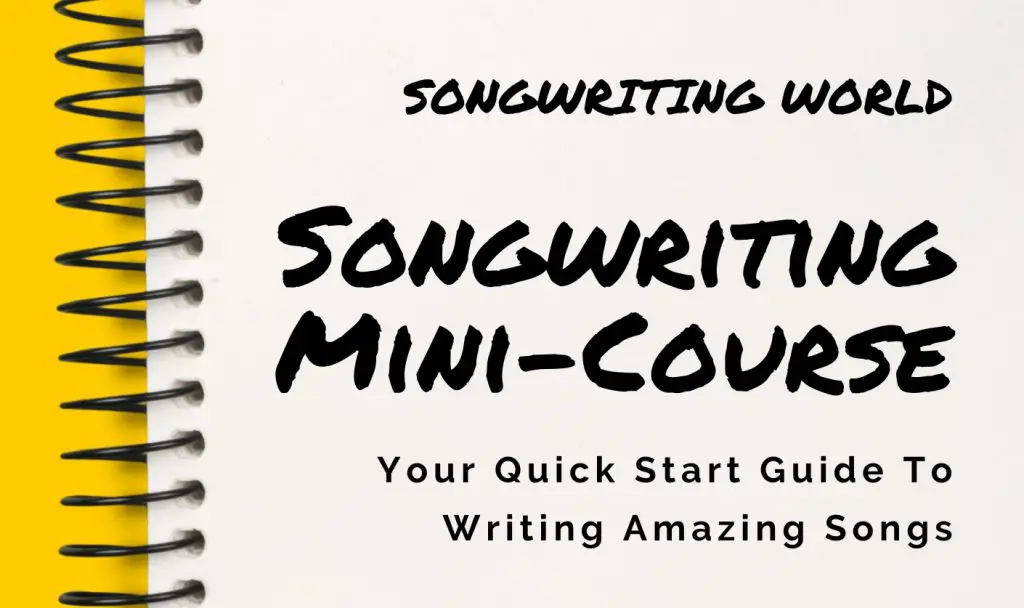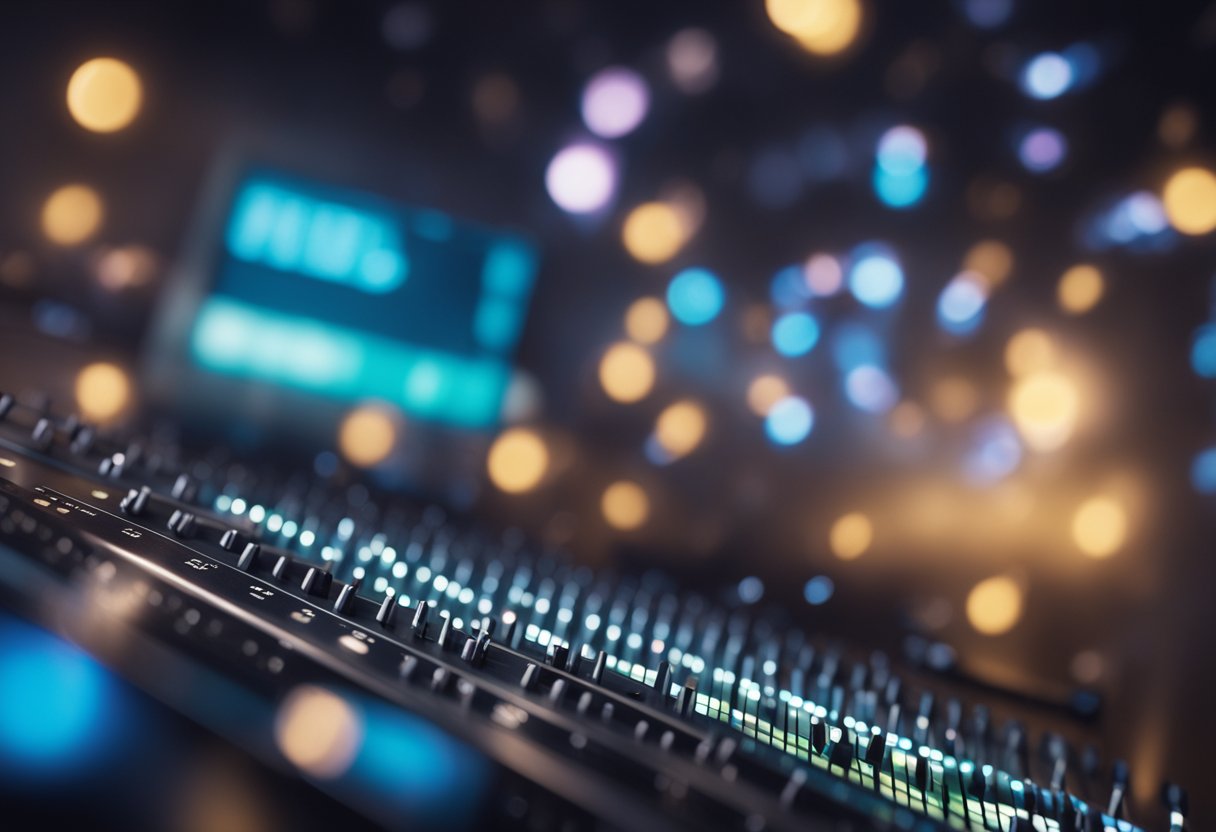Artificial intelligence is reshaping the landscape of music production. It offers tools that can enhance creativity and efficiency for musicians and producers.
These AI tools for music production cater to a variety of needs. They can generate fresh musical ideas and master tracks with precision. Musicians can adopt AI to handle complex processes in their workflow. This allows them to focus more on the creative aspects of their craft.
In today’s fast-paced music industry, the adoption of AI-driven solutions is becoming a game-changer. AI for music production includes innovative applications that can assist in composing melodies, extracting stems from existing tracks, and even suggesting chord progressions.

This integration of AI into music is not just about simplifying tasks. It also opens doors to innovative possibilities that were previously difficult to achieve.
By utilizing these tools, musicians can break new ground in their compositions and production quality, no matter their level of expertise. Whether they are seasoned professionals or enthusiastic newcomers, AI music tools bridge the gap between technical know-how and artistic expression. They provide endless opportunities to shape the music of the future.
Check out Songwriting World's AI companion: Music Maestro
We love the potential of AI for musicians. That’s why we created our own tool. Check it out right here.
AI Tools for Music Creation
Artificial intelligence is revolutionizing the way music is composed, produced, and even conceptualized. This section uncovers the various AI tools that assist musicians in these creative processes.
AI-Based Music Composition Software
AI-based music composition software allows musicians to craft original pieces with the assistance of intelligent algorithms. Tools like the ones discussed on Ditto Music can generate base melodies and songs. Musicians can input their own ideas and let the AI enhance and develop their themes into full compositions. This facilitates a faster and potentially more innovative creation process.

AI-Driven Sound Design
In sound design, AI-driven tools enable the manipulation and creation of unique audio elements. The DeepMind Blog introduces AI technologies that transform audio from one style to another, as well as create new instrumental sections. These tools can extract and modify specific sounds from a mix, making the design process more versatile and efficient.
AI for Generating Sheet Music
AI also simplifies the transcription of music into sheet music. This transcription process can be incredibly time-consuming and complex, but AI assists in rapidly analyzing audio files and generating corresponding sheet music. As the technology advances, it grows more adept at handling intricate musical nuances. This makes it an indispensable tool for composers who want to visualize their music or share it with others.
AI Enhancement for Music Production
The advent of AI tools has revolutionized the way music is produced, offering versatile solutions that transform compositions into polished tracks with ease.
Audio Mixing Aids
AI-powered audio mixing aids have become an essential asset in the music production process. Programs like Magenta Studio provide plugins that integrate with industry-standard software such as Ableton Live. These tools can offer suggestions for balancing audio levels and applying EQ settings, which streamline the mixing phase.
Mastering Plugins
Mastering plugins that employ AI algorithms are now readily available, significantly simplifying what was once a meticulous process. They can competently adjust the final sound of a track to ensure it translates well across all playback systems. The Orb Producer Suite is a notable example that tailors the mastering to the genre and desired loudness. It offers customized results that adhere to professional standards.
AI Beat Making Tools
For rhythm and tempo, AI beat making tools are a groundbreaking innovation. They can generate complex drum patterns and percussive elements that match the style of a track. Such technology not only quickens the beat creation process but also opens up new possibilities for unique rhythms, contributing to the producer’s arsenal of sound.
Machine Learning in Music Education
Machine learning is transforming the landscape of music education by offering customized and interactive learning experiences. These technologies adapt to individual learning styles and pace, enhancing the educational journey for students.
AI Music Tutors
AI music tutors apply machine learning algorithms to provide personalized instruction for students. They often include features like real-time performance feedback and adapt to the student’s progress. This ensures that each lesson is tailored to their current skill level. For instance, AI-assisted music education has made strides with tools that listen to students play and offer immediate correction and encouragement.
Interactive Learning Platforms
Interactive learning platforms incorporate machine learning to create a more engaging learning environment. They offer a suite of educational resources, from interactive tutorials to practice tools that respond to the student’s input. Music education benefits significantly from platforms leveraging machine learning to analyze song spectrograms and provide chord annotations. This enriches the student’s understanding of music theory and composition.
AI in Music Recommendation Systems
Artificial intelligence has significantly transformed how listeners discover music. Music recommendation systems employ advanced algorithms and machine learning techniques to analyze an individual’s listening habits and preferences.
This personalization not only increases user engagement but also aids music platforms in presenting content tailored to each listener.
One element of such systems is collaborative filtering, which extrapolates preferences from vast amounts of user data. Collaborative filtering suggests tracks by finding patterns and similarities among users and their music choices. For example, if a user enjoys a particular genre or artist, the AI system recognizes this pattern and recommends similar music.
In addition to user data, AI systems consider context. They might look at what a person is doing – possibly working out, commuting, or relaxing – and suggest music fitting the mood or activity.
The idea is further explored in discussing the benefits and challenges of AI-driven music recommendation systems, which highlights the importance of personalized music discovery.
Moreover, these technologies keep evolving. The systems learn and improve constantly through feedback loops. Each “like,” “skip,” or “add to playlist” informs the AI, refining future recommendations. This iterative process ensures that music recommendations stay dynamic and reflective of current user tastes.
AI-Powered Tools for Music Analysis
AI-powered tools for music analysis provide musicians with insightful feedback on various aspects of their music. They can analyze sentiment, classify genre, and break down melody and harmony with precision.
Sentiment Analysis
Sentiment analysis tools use AI to interpret the emotional tone of a song. They assess elements like key, tempo, and lyrics to determine whether a track is happy, sad, energetic, or soothing. This can be incredibly useful for musicians looking to convey a particular emotional message through their music.
Genre Classification
AI can also automatically classify a song’s genre. By examining features such as rhythm, instrumentation, and structure, these tools help artists understand how their music aligns with existing genres. For musicians navigating the streaming landscape, clear genre classification facilitates better placement on playlists and can aid in targeting the right audience.
Melody and Harmony Analysis
Finally, AI excels at analyzing melodies and harmonies. It can detect chord progressions, key changes, and melodic motifs. By breaking down these elements, AI tools provide feedback on the compositional strength and originality of a piece. This is beneficial for songwriters looking to refine their work or avoid unintentional plagiarism.
Voice and Speech Processing
Musicians can now employ AI-driven tools for more efficient voice and speech processing tasks, including vocal tuning and speech synthesis, which are crucial for song production and creative songwriting.
Vocal Tuning and Harmonization
AI technology has significantly simplified vocal tuning, allowing for real-time pitch correction and even the emulation of famous singers’ voices.
For instance, artists can utilize plugins that automatically align and tune vocals with remarkable accuracy. Some platforms like Uberduck also offer voice conversion technology, enabling producers to create unique vocal effects.
Speech Synthesis for Songwriting
For songwriting, speech synthesis AI is pivotal for generating lyrics and melodies. Tools like Kits AI allow the creation of vocals and harmonies with both AI and custom voices.
Moreover, songwriters can use one-click training features to generate a personalized AI voice, expanding their creative options. These synthesized voices can also be tweaked and refined to fit the artistic vision of the piece.
Real-Time AI Tools for Live Performance
Real-Time AI Tools have revolutionized the way live performances are delivered, enhancing the interaction between artists and technology on-stage in unprecedented ways.
Live Accompaniment Generation
AI-driven software can now listen to live music and generate complementary accompaniments in real-time. Musicians can benefit from systems that add layers to their performance, adjusting to tempo changes and harmonies on-the-fly.
For instance, an AI tool might provide a dynamic bass line that follows the melody played by a soloist.
AI-Enabled Sound Effects
In the realm of live sound modulation, AI enables sophisticated effects that respond to the musician’s style and the music’s dynamics.
With pedals and mixers augmented by AI, artists have access to an expanded range of sounds that react in real-time to their playing, creating a richer audience experience. These tools might introduce reverb and delay patterns that evolve with the intensity of the performance.
AI for Music Distribution and Monetization

Artificial Intelligence is revolutionizing music distribution and monetization by offering tools that enable artists to analyze streaming data and streamline royalty payments with precision.
Music Streaming Analytics
AI-powered streaming analytics tools provide musicians with deep insights into listener behavior and track performance.
Platforms like Ditto Music integrate AI. With these platforms, artists can now access real-time data to understand where their music is hitting the right note and with whom. These metrics focus on:
- Location Data: Pinpointing where in the world their tracks are most popular.
- Listener Demographics: Analyzing age groups, genders, and other demographics engaging with their music.
Automated Royalty Distribution Systems
AI not only helps artists keep tabs on the performance of their music but also ensures they get paid fairly and efficiently.
Automated royalty distribution systems simplify the complex process of tracking, collecting, and distributing royalties. An example is:
- Real-time Earnings: Artists can see earnings in real-time, aiding financial planning.
Through such systems, artists have a transparent and effortless approach to manage their revenues from multiple streaming platforms and digital stores.
Collaboration Platforms for Musicians and AI
In the intersection of music creation and technology, collaboration platforms that leverage AI are growing in prominence. These tools offer musicians innovative ways to compose, produce, and master their work.
AIVA (Artificial Intelligence Virtual Artist) is a platform that specializes in creating emotional soundtracks for various media. Musicians can harness AIVA to generate melodies and chord progressions, potentially overcoming creative hurdles or sparking new ideas.
For a more intuitive approach, Landr delivers AI-driven mastering services, adjusting track subtleties to achieve a professional-grade sound. Another platform, Izotope’s Ozone, utilizes AI for mastering and mixing, offering insights to refine the production process.
Musicians seeking assistance in mastering their tracks might find solace in eMastered, an AI tool crafted by Grammy-winning engineers. The technology focuses on balancing loudness and dynamic range, equipped with a powerful limiter.
Platforms such as LALAL.AI showcase AI tools for mixing and mastering, analyzing audio much faster than a human. This can save musicians precious time, allowing them to concentrate on creativity and composition.
AI in Music Archiving and Preservation
Archiving and preservation of music have entered a new era with the introduction of artificial intelligence (AI). AI has become a critical tool in safeguarding musical heritage. For those dedicated to the conservation of music, AI provides innovative methodologies for restoring and reconstructing old and damaged compositions, as discussed in an article on Medium.
One significant aspect is the capability of AI to analyze and digitize analog recordings, making them more accessible and less susceptible to further decay. AI algorithms work tirelessly to filter out noise and enhance sound quality, ensuring that future generations can enjoy historical pieces in their enhanced forms.
Moreover, artificial intelligence assists in:
- Transcribing historical scores that are no longer legible
- Reconstructing lost or incomplete musical pieces
- Predicting degradation patterns in physical media
An exciting application of AI in music archiving includes the extraction of detailed musical patterns from vast data sets. Such advancements not only preserve the past but also help researchers understand musical evolution. As noted in Berklee Online’s article on AI music, AI’s deep learning models have started to unravel the complexities of music from different periods, facilitating novel ways to analyze and maintain music’s rich history.
Frequently Asked Questions
In this section, we address some of the most common inquiries regarding the intersection of AI and music production, offering clear insights into the capabilities and applications of AI for musicians.
What are some popular AI applications for creating music?
Popular AI applications for music creation include tools that help in generating base melodies, composing full tracks, and enhancing songwriting. Notable applications have proven their worth by providing artists with innovative ways to inspire new creations.
How can AI tools assist in music production?
AI tools in music production can simplify complex tasks such as arranging music, generating accompaniment, and producing variations in style. They serve as creative aids that can bring new perspectives to an artist’s work.
Are there any free AI-powered music creation tools available?
Yes, there are free AI-powered music creation tools available that offer various features, from melody generation to rhythm and harmony suggestions, allowing musicians to experiment without financial constraints.
What do musicians need to know when incorporating AI into their workflow?
Musicians should understand that AI tools are designed to augment creativity, not replace it. They need to be familiar with the capabilities of these applications and how they can align with their personal style and desired output.
How does AI contribute to music composition and songwriting?
AI contributes to music composition and songwriting by providing algorithms that can analyze vast amounts of data to suggest chord progressions, melodies, and even lyrics, often resulting in unique and complex musical pieces.
Can AI technology help with sound mixing and mastering in music production?
Certainly, AI technology can aid in sound mixing and mastering. It offers precise adjustments and automated processes that can enhance sound quality. This ensures a consistent and professional finish to the music production process.
Check out Songwriting World's AI companion: Music Maestro
We love the potential of AI for musicians. That’s why we created our own tool. Check it out right here.

